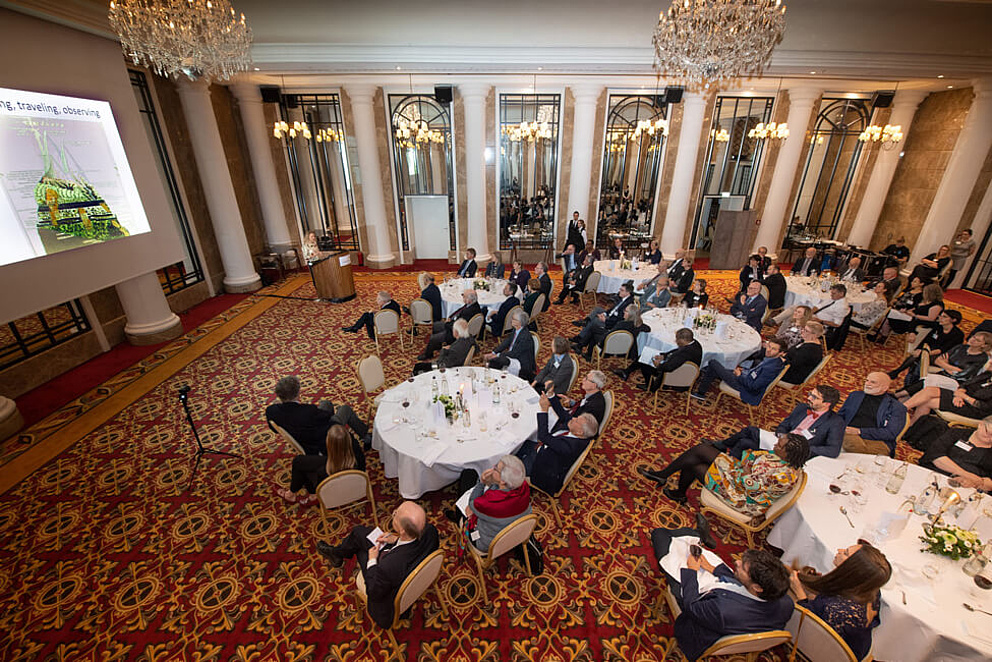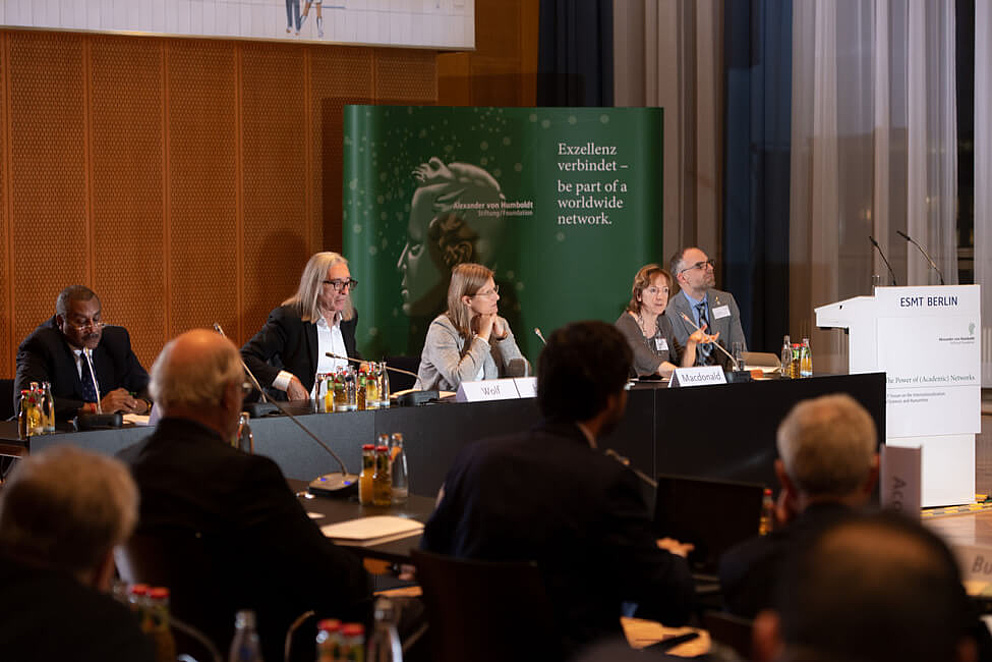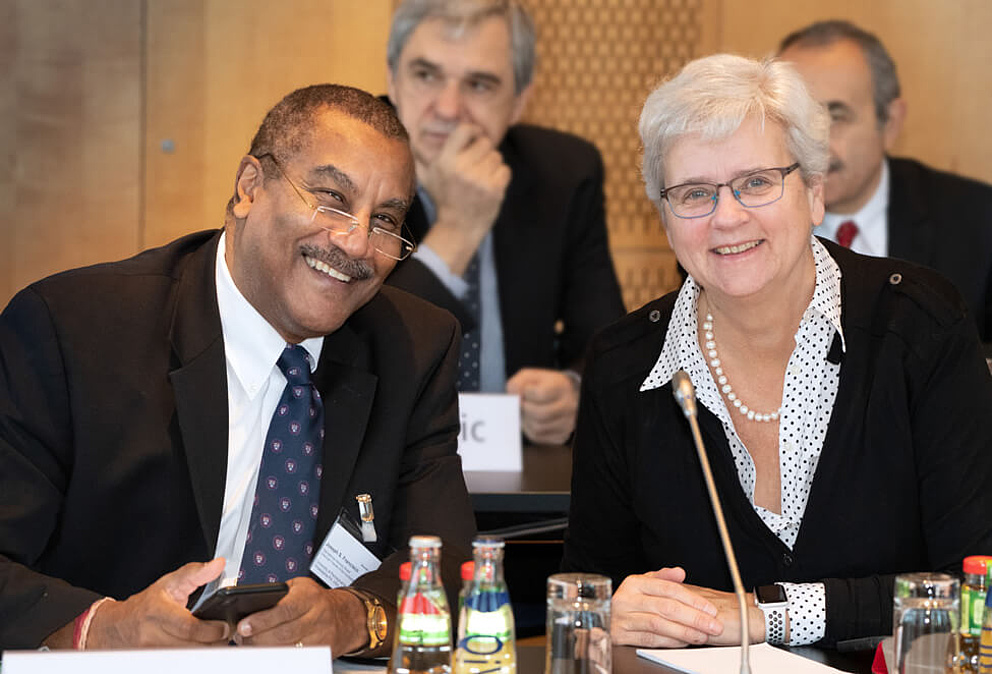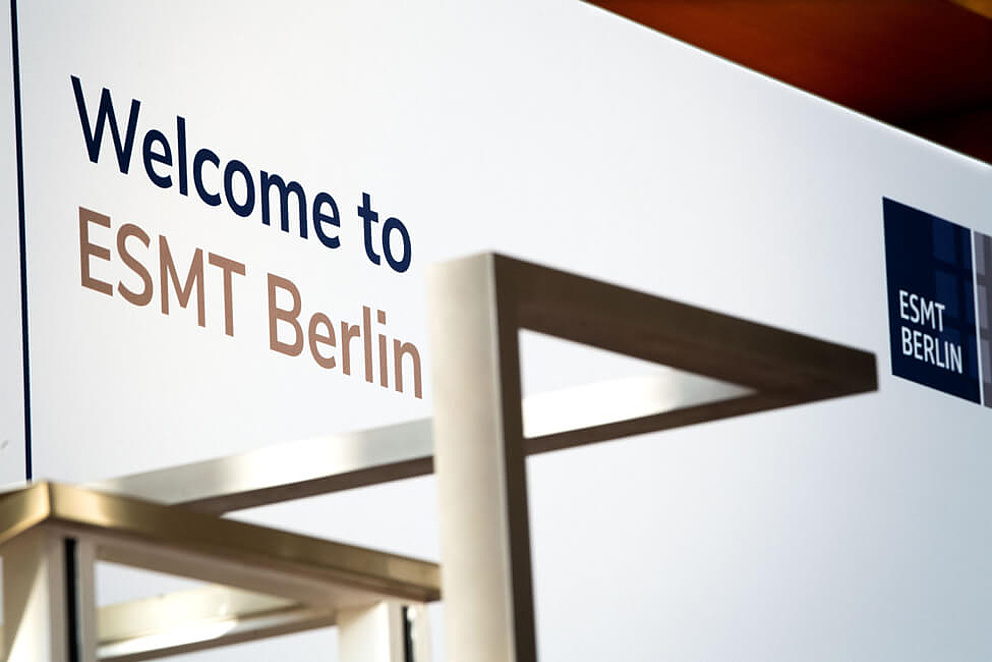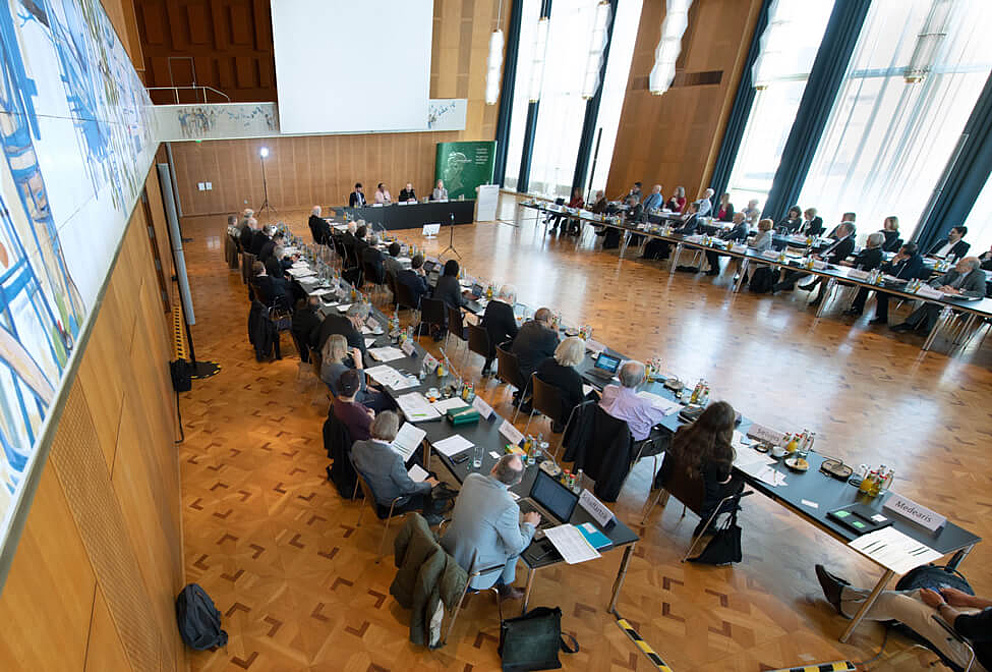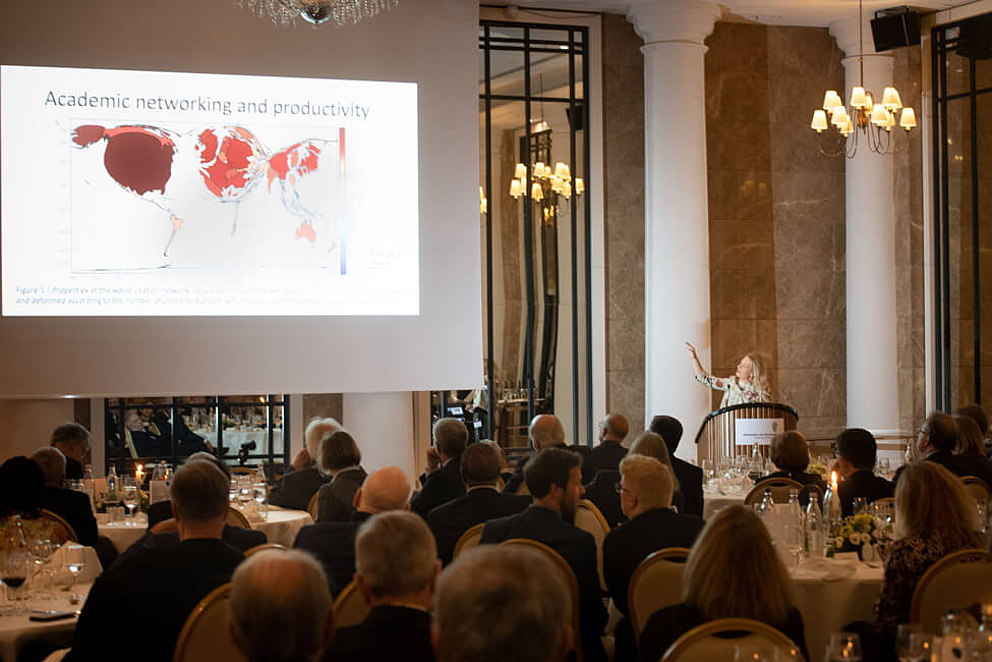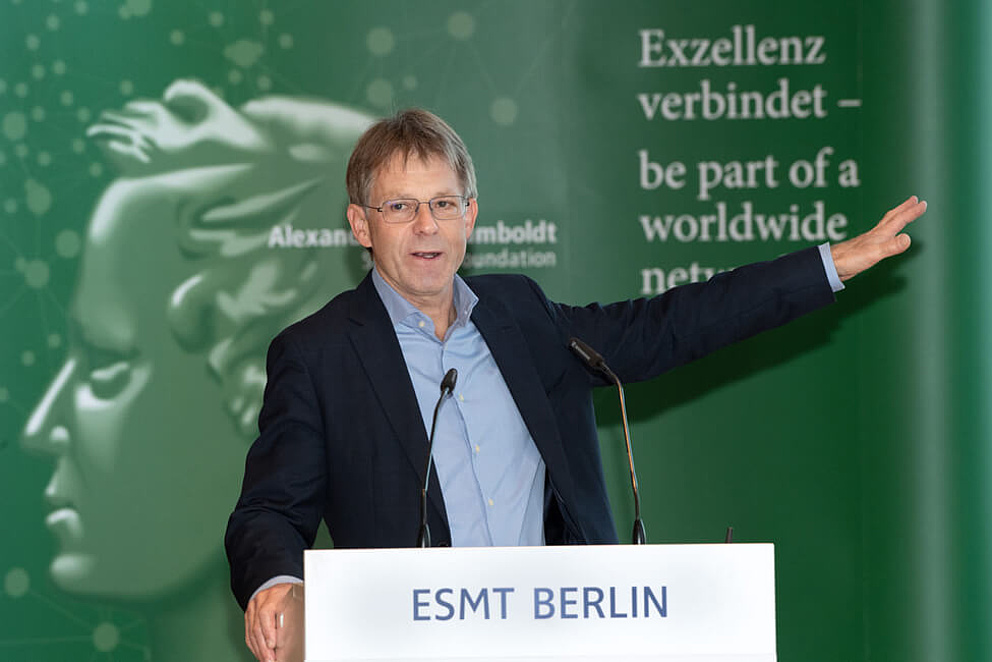
Contact
Press, Communications and Marketing
Tel.: +49 228 833-144
Fax: +49 228 833-441
presse[at]avh.de
The guests attending the Power of (Academic) Networks conference included Antje Boëtius, chairperson of the Steering Committee of Wissenschaft im Dialog (Science in Dialogue) and director of the Alfred Wegener Institute - Helmholtz Centre for Polar and Marine Research in Bremerhaven, and Caroline S. Wagner, Associate Professor for International Relations at Ohio State University, who studies the role of science networks and their influence and served for years as a policy advisor to the White House in matters relating to science and technology.
The participants discussed the effects global academic networks like the Humboldt Foundation network have on science and progress and, consequently, on nations and their societies. Caroline S. Wagner presented her data and impact analyses which suggest that international research cooperation and government funding for excellent researchers from abroad have a positive impact on science in the respective countries. “Open countries have strong science” summarises the findings of her work. The experts also discussed how academic networks have to be designed in today’s digital world so that they are not only productive but also inclusive.

